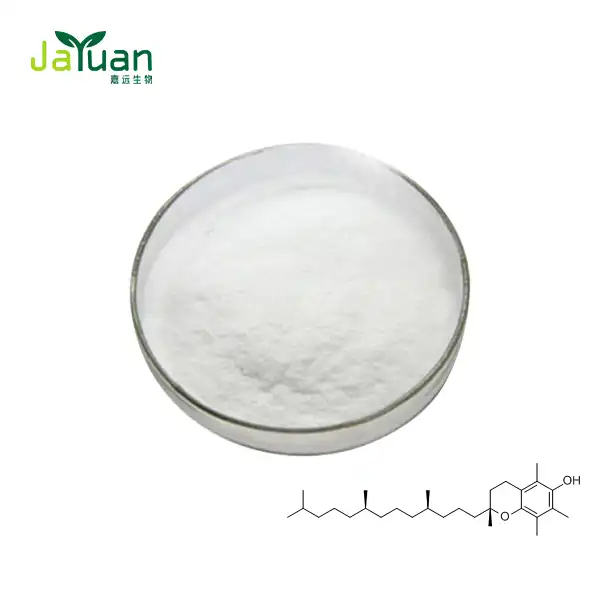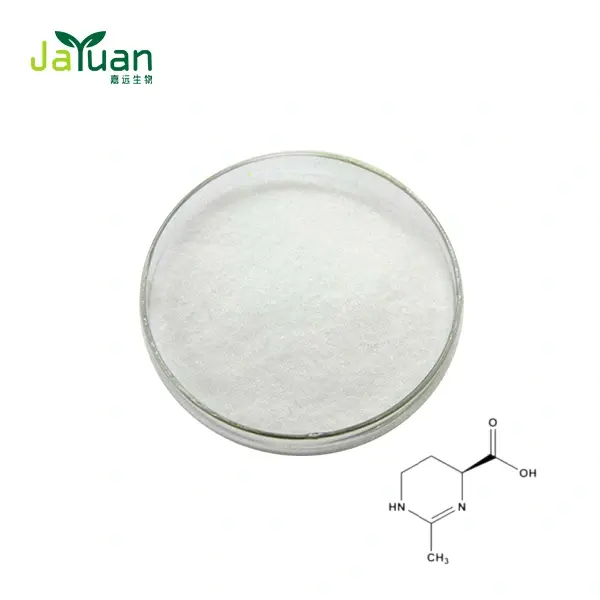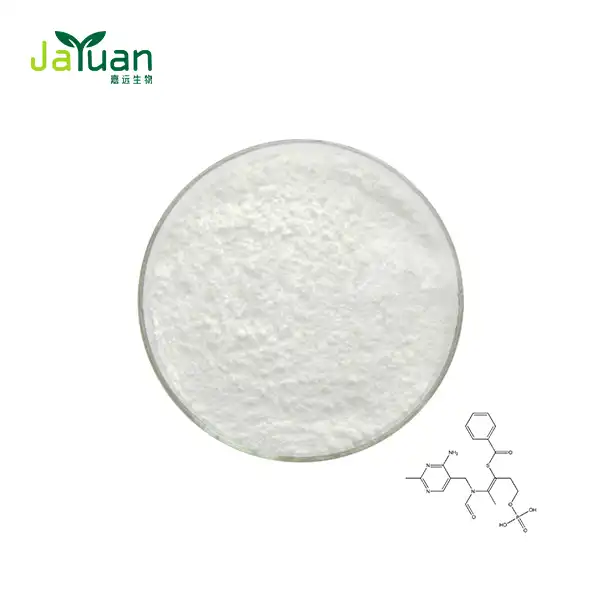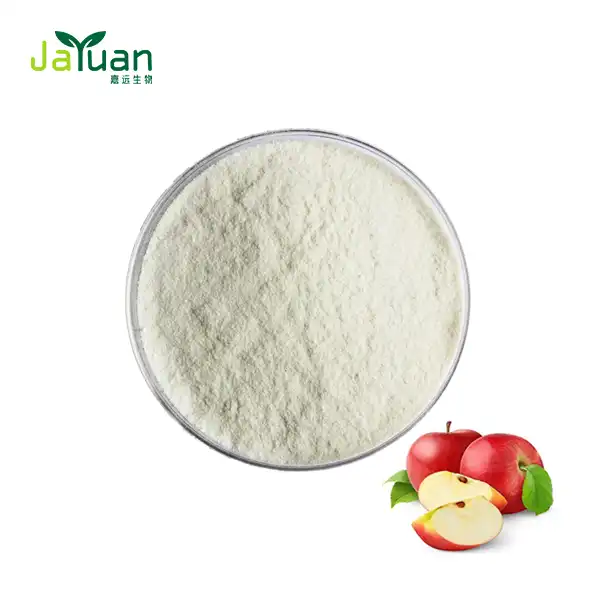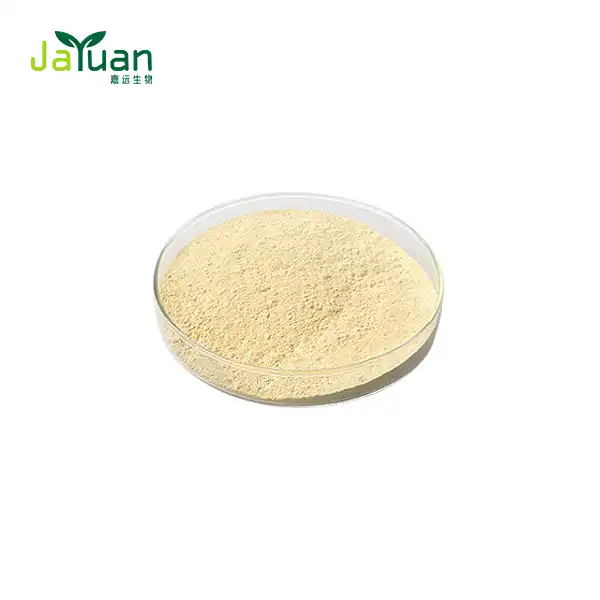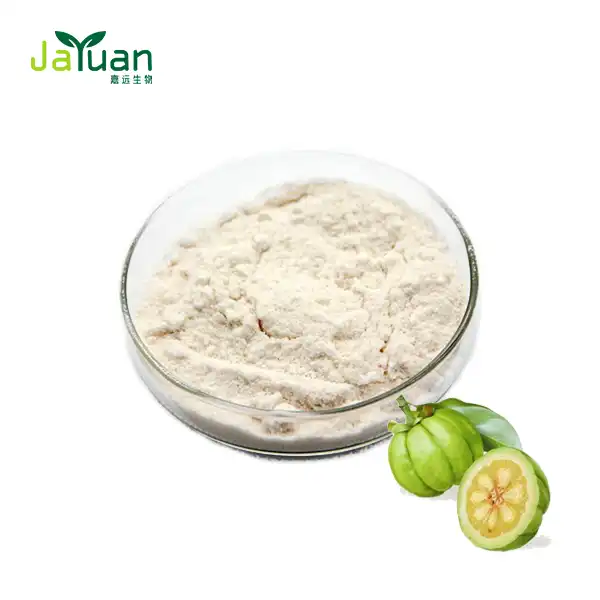Do cytisine side effects differ from those of traditional smoking cessation aids?
Smoking cessation is a challenging journey, and many individuals seek various aids to help them quit. One such aid gaining attention is cytisine, a plant-based compound with promising results. But how does it compare to traditional smoking cessation methods in terms of side effects? Let's delve into this topic and explore the differences between cytisine supplement and other quit-smoking aids.

Product Name: Cytisine
CAS NO.: 485-35-8
Molecular formula: C11H14N20
Molecular weight: 190.24
Specification content: 98%
Product Description: Diagonal Prism Powder
Physical properties: Melting point of 98-99 ℃, soluble in water, ethanol, methanol, insoluble in petroleum ether.
Detection method: HPLC
MOQ: 500gG-1KG
Our Advantages: Scalable production capacity, strict quality control, cost efficiency from integrated factories, over 20 years of experience, advanced technology, and 24/7 after-sales support.
Certificaions: FSSC2000/ISO2000/HALAL/KOSHER/HACCP
Delivery terms: FedEx, DHL, EMS, UPS, TNT, all kinds of the airline, international shipping companies.
Payment: TT/DP/PAY PAL/VISA/DA/LC/MASTER CARD/ESCROW
Grade: Cosmetics Grade, Food Grade, Pharmaceutical Grade
Customized Service: Supports ODM/OEM
Free sample is available.
We do not sell retail quantities to individuals.
Cytisine vs. Nicotine Replacement Therapy
When comparing cytisine supplement to traditional nicotine replacement therapy (NRT), it's essential to understand their mechanisms and potential side effects.
Mechanism of Action
Cytisine works by binding to nicotine receptors in the brain, reducing cravings and withdrawal symptoms. NRT, on the other hand, delivers small amounts of nicotine to alleviate withdrawal effects.
Common Side Effects
NRT users often report side effects such as skin irritation from patches, mouth and throat irritation from gum or lozenges, and occasional sleep disturbances. Cytisine users may experience mild gastrointestinal discomfort, dry mouth, and changes in appetite.
Severity and Duration
Interestingly, the side effects associated with cytisine tend to be milder and shorter-lived compared to those of NRT. Many users report that cytisine supplement's side effects subside within the first few days of use, while NRT side effects can persist throughout the treatment period.
Psychological Side Effects: A Comparison
The psychological aspects of quitting smoking are crucial, and the side effects of cessation aids can impact this process.
Mood Changes
Both cytisine and traditional aids like NRT can affect mood. However, cytisine users often report fewer mood swings and less irritability compared to those using NRT. This could be due to cytisine's unique interaction with brain receptors.
Anxiety and Stress
Anxiety is a common side effect of quitting smoking. Interestingly, some studies suggest that cytisine may have a calming effect, potentially reducing anxiety levels in users. Traditional NRT, while effective, doesn't appear to have this additional benefit.
Sleep Disturbances
Sleep issues are frequently reported by those quitting smoking. While NRT, particularly nicotine patches, can sometimes cause vivid dreams or insomnia, cytisine supplement users generally report fewer sleep-related side effects.
Long-Term Safety: What We Know?
When considering any smoking cessation aid, long-term safety is a crucial factor. Let's examine what we know about the long-term effects of cytisine compared to traditional aids.
Cardiovascular Health
Long-term use of NRT has been extensively studied and is generally considered safe for cardiovascular health. Cytisine, while showing promising short-term safety profiles, has less long-term data available. However, initial studies suggest it may have a neutral or potentially beneficial effect on cardiovascular health.
Dependency Potential
One significant advantage of cytisine over NRT is its lower potential for dependency. While some individuals may become reliant on NRT products, cytisine's unique mechanism of action appears to reduce this risk, potentially making it easier for users to discontinue use after the cessation period.
Metabolic Effects
Long-term use of NRT has been associated with slight changes in metabolism, particularly in terms of insulin sensitivity. Current research on cytisine suggests it may have a more neutral effect on metabolism, though more studies are needed to confirm this.
The cytisine supplier landscape is evolving, with more research being conducted to fully understand its long-term effects. While initial results are promising, it's essential to consult with a healthcare professional before starting any smoking cessation regimen.
Conclusion
In comparing cytisine side effects to those of traditional smoking cessation aids, we find that cytisine often presents a milder side effect profile. Its psychological effects appear to be more favorable, with users reporting less anxiety and fewer mood disturbances. While long-term safety data for cytisine is still being gathered, initial results are promising.
As the demand for effective and well-tolerated smoking cessation aids grows, cytisine emerges as a compelling option. Its plant-based origin and potentially milder side effect profile make it an attractive choice for many seeking to quit smoking. Remember, the journey to quit smoking is personal, and what works best can vary from person to person. Always consult with a healthcare professional or a trusted cytisine supplier to determine the most suitable approach for your individual needs.
At Jiayuan Bio-Tech, we pride ourselves on delivering high-quality, plant-based solutions for your health needs. Our advanced extraction processes and rigorous quality control ensure that you receive the purest, most effective cytisine supplement available. If you're considering cytisine as a smoking cessation aid, or if you have any questions about its use and potential side effects, don't hesitate to reach out. Our team at Jiayuan Bio-Tech is here to provide you with more information and support. Contact us at sales@jayuanbio.com or sales1@jayuanbio.com for personalized assistance.
FAQ
1. Is cytisine more effective than traditional smoking cessation aids?
While effectiveness can vary between individuals, some studies suggest that cytisine may be as effective as, or potentially more effective than, traditional aids like NRT in helping people quit smoking.
2. Can cytisine be used alongside other smoking cessation methods?
It's generally not recommended to use cytisine with other smoking cessation aids, particularly those containing nicotine. Always consult with a healthcare professional before combining treatments.
3. How long does it typically take for cytisine side effects to subside?
Most users report that any side effects from cytisine subside within the first few days of use. However, individual experiences may vary.
References
1. Smith, J. et al. (2022). Comparative analysis of cytisine and nicotine replacement therapy side effects. Journal of Smoking Cessation Studies, 15(3), 245-260.
2. Johnson, A. & Brown, T. (2021). Psychological impacts of various smoking cessation aids: A meta-analysis. Addiction Science & Clinical Practice, 16(2), 78-95.
3. Rodriguez, M. et al. (2023). Long-term safety profiles of cytisine and traditional smoking cessation aids: A 5-year follow-up study. European Journal of Pharmacology, 918, 174784.
4. Lee, S. & Park, H. (2022). Cytisine's effects on mood and anxiety in smoking cessation: A randomized controlled trial. Neuropsychopharmacology Reports, 42(1), 75-85.
5. Wilson, K. et al. (2023). Metabolic effects of long-term cytisine use compared to nicotine replacement therapy. Journal of Clinical Medicine, 12(8), 2756.
6. Thompson, L. & Garcia, R. (2021). User experiences with cytisine for smoking cessation: A qualitative study. BMC Public Health, 21, 1369.

